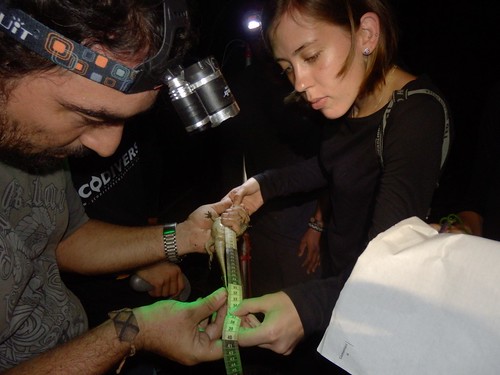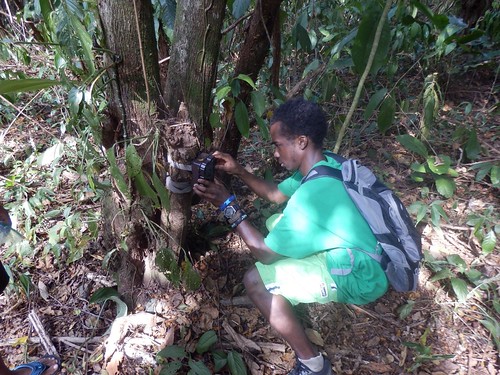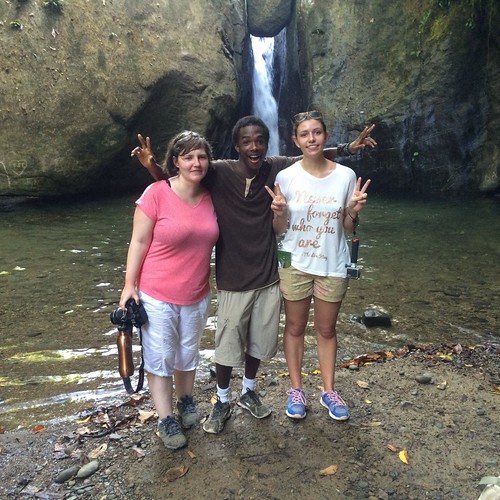Earlier this year a group of Foundation Degree Applied Animal Management and Animal Conservation students from Bridgwater College participated in an educational trip to Costa Rica, staying in a reserve called Playa Tortuga (Turtle Beach) situated on the Pacific coast of the country.
Staff on the reserve specialise in both turtle and crocodilian conservation, and encourage volunteers to come to the reserve to help conserve these species. The research team were very accommodating, helpful and knowledgeable about the surrounding habitat and made the group feel at home throughout our stay.

The group learned a great deal about practical conservation throughout the trip by taking part in activities such as mammal surveys, animal identification and caiman monitoring alongside the research team. The reserve team were excellent at facilitating learning as they allowed the students to learn by trial and error.
The students were given the opportunity to reposition trail cameras they had laid once they had seen some of their initial footage. This was a realistic approach to study and allowed the students to experience the issues that can arise during research in the environment.

A highlight of the expedition was the caiman conservation activities, which offered a wonderful opportunity to assist with conservation efforts within the country. The students were actively encouraged to measure, weigh and help tag the animals alongside researchers before releasing them back into their habitat. The reserve staff also put this practical conservation into context by presenting information and allowing discussion around caiman and crocodile conservation. Some of the students were so inspired by their visit that they have indicated that they would like to volunteer at the reserve in the future.
Adam George, Associate Lecturer in Animal Care at Bridgwater College and trip leader said,
“This trip was an ideal opportunity for our students to practice hands-on conservation and animal management techniques, which will benefit them in their future careers. We believe that it is essential that practical skills are gained alongside their academic studies, and the best opportunity to do this is in countries that have excellent conservation records, such as Costa Rica.”

Conservation is the practice of protecting endangered plant and wild animal species and their habitat and studying the issues that are current and emerging globally. The experience continued with a range of activities, including viewing a reef through snorkelling, touring a mangrove and a trip to another national park where the group were fortunate enough to see sloths in their natural habitat. A whole host of species were observed throughout the trip, including, capuchin monkeys and toucans. This really highlighted the rich biodiversity found in Costa Rica.
Adam George continued,
“The international trip that we offer on our programmes provides our students with an appreciation of worldwide conservation and animal management techniques. The information and skills they learn on our courses can be used and augmented by travelling to different countries and they will have the opportunity to understand the issues that conservationists face in different parts of the world. These trips also allow our students to work with local communities and gain an understanding of how this can directly benefit the conservation of endangered species.”
The students made an applied contribution to conservation in Costa Rica, which has provided them with a high level of satisfaction and motivation to make a real difference. This work will benefit their future career prospects because they have gained essential practical skills under the tutelage of professional conservationists.




